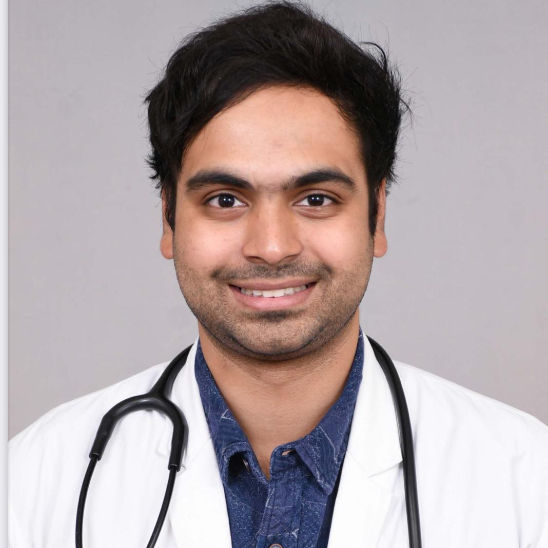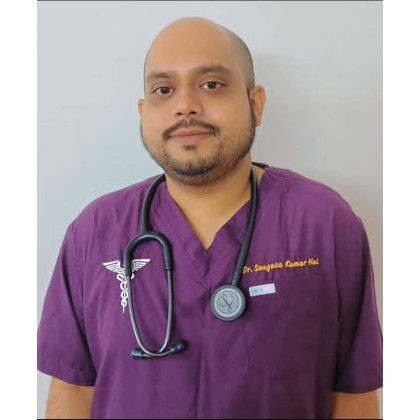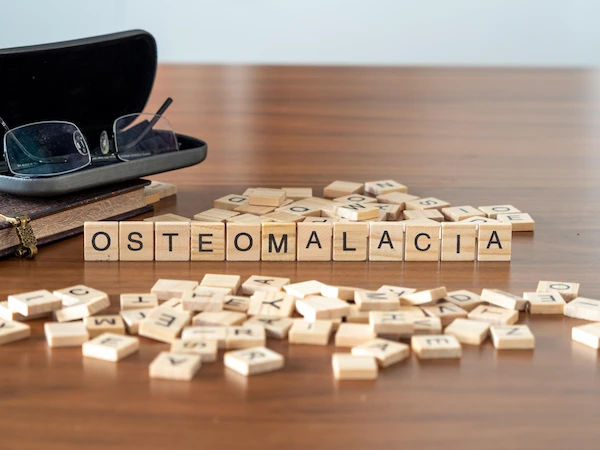Whole Genome Sequencing and NGS Technologies
Whole Genome Sequencing (WGS) and Next-Generation Sequencing (NGS) provide deep insights into your DNA, helping diagnose genetic disorders, assess disease risks, and guide personalised treatment. Learn how they work, uses, benefits, and what to expect.

Written by Dr. Siri Nallapu
Reviewed by Dr. Rohinipriyanka Pondugula MBBS
Last updated on 13th Jan, 2026

In today’s world, medical science has advanced tremendously, allowing doctors to look deep into our genetic makeup to understand health risks, diagnose diseases, and even personalise treatments. One such groundbreaking technology is Whole Genome Sequencing (WGS) and Next-Generation Sequencing (NGS).
If you’ve heard these terms but aren’t sure what they mean or how they can help you, this article will explain everything in simple, easy-to-understand terms.
What is Whole Genome Sequencing (WGS)?
Your genome is like a blueprint of your body—it contains all the genetic information that makes you unique. Whole
Genome Sequencing (WGS) is a process that reads and maps out your entire DNA sequence. This helps doctors and
scientists identify genetic variations that may affect your health.
How Does It Work?
- A small sample (usually blood or saliva) is taken from you.
- Advanced machines read your DNA code (A, T, C, G—the building blocks of DNA).
- Computers analyse the data to find changes (mutations) that could cause diseases.
Why is WGS Important?
- Helps diagnose rare genetic disorders.
- Predicts risk for diseases like cancer, heart disease, or diabetes.
- Guides personalised medicine (choosing the best treatment based on genes).
What is Next-Generation Sequencing (NGS)?
Next-Generation Sequencing (NGS) is a faster, more efficient way to read DNA compared to older methods. While
WGS looks at the entire genome, NGS can focus on specific genes or parts of DNA, making it useful for targeted
testing.
How is NGS Used?
- Cancer Testing: Identifies gene mutations in tumours to choose the best therapy.
- Infectious Diseases: Detects viruses or bacteria (like in COVID-19 testing).
- Newborn Screening: Checks for genetic disorders early in life.
Who Should Consider WGS or NGS Testing?
These tests can be helpful if:
- ✔ You have a family history of genetic diseases (e.g., breast cancer, Alzheimer’s).
- ✔ You have unexplained symptoms that doctors can’t diagnose.
- ✔ You want to understand your risk for future health conditions.
- ✔ You’re planning a family and want to check for inherited disorders.
How Can WGS and NGS Improve Your Health?
- Early Disease Detection – Finding risks before symptoms appear.
- Personalised Treatment – Medicines tailored to your genes work better.
- Family Planning – Knowing genetic risks helps in making informed decisions.
What to Expect During the Test?
- A simple blood or saliva sample is taken.
- Results may take a few weeks as data is analysed.
- A genetic counsellor or doctor explains the findings.
Are There Any Risks?
- Privacy Concerns: Genetic data is sensitive; ensure labs follow strict confidentiality.
- Emotional Impact: Learning about disease risks can be stressful, so counselling is recommended.
How Can You Prepare for Genetic Testing?
- ✔ Discuss with your doctor if WGS/NGS is right for you.
- ✔ Understand what the test can and cannot reveal.
- ✔ Be mentally prepared for possible findings.
Can Lifestyle Changes Help Based on Genetic Results?
Yes! If your test shows a higher risk for certain conditions, you can take steps like:
- Heart Disease Risk? → Improve diet, exercise, and monitor cholesterol.
- Diabetes Risk? → Maintain healthy weight and blood sugar levels.
- Cancer Risk? → Regular screenings and preventive measures.
How to Get Tested?
If you’re interested in WGS or NGS, you can:
🔹 Consult a genetic specialist through Apollo 24|7.
🔹 Schedule a test at a trusted lab.
Genetic testing is a powerful tool that can give you insights into your health like never before. If you have concerns or a family history of genetic conditions, consider speaking to a doctor about whether WGS or NGS could benefit you.
Final Thoughts
Whole Genome Sequencing and NGS are transforming medicine by providing deeper insights into our health. While these tests are advanced, they are becoming more accessible. If you’re curious or concerned about genetic risks, a simple test could help you take control of your health journey.
Would you like to explore genetic testing options? Book a consultation today with Apollo 24|7 and take the first step toward personalised healthcare!
Consult a General Practitioner for Personalised Advice
Consult a General Practitioner for Personalised Advice

Dr. Rajib Ghose
General Physician/ Internal Medicine Specialist
25 Years • MBBS
East Midnapore
VIVEKANANDA SEBA SADAN, East Midnapore

Dr. Ashita Kuruvilla
General Practitioner
7 Years • MBBS
Kolkata
KVC CLINIC, Kolkata

Dr. Debdatta Pati
Psychiatrist
18 Years • MBBS, DPM, MD (PSYCHIATRY)
Kolkata
MCR SUPER SPECIALITY POLY CLINIC & PATHOLOGY, Kolkata

Dr Bhargav Vuppumalla
General Physician/ Internal Medicine Specialist
5 Years • MBBS MD GENERAL MEDICINE
Bengaluru
Apollo Medical Center, Marathahalli, Bengaluru

Dr. Sougata Kumar
General Practitioner
8 Years • MBBS
East Midnapore
VIVEKANANDA SEBA SADAN, East Midnapore




_0.webp)